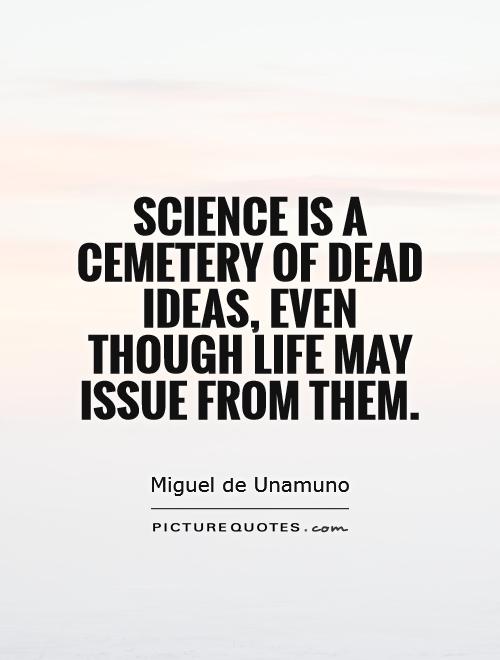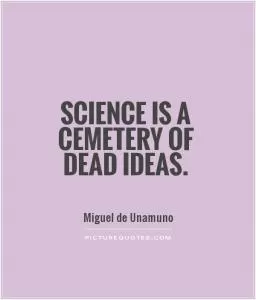Science is a cemetery of dead ideas, even though life may issue from them

Science is a cemetery of dead ideas, even though life may issue from them
Miguel de Unamuno, a Spanish philosopher and writer, once famously said, “Science is a cemetery of dead ideas, even though life may issue from them.” This profound statement encapsulates the paradoxical nature of scientific progress and the constant evolution of ideas within the realm of science.Unamuno's assertion that science is a cemetery of dead ideas can be interpreted in several ways. On one hand, it highlights the fact that scientific theories and hypotheses are constantly being challenged, revised, and discarded as new evidence and knowledge emerge. In this sense, the history of science is littered with the remains of once widely accepted ideas that have been proven incorrect or incomplete. From the geocentric model of the universe to the concept of phlogiston, many scientific theories that were once considered groundbreaking have been consigned to the dustbin of history.
However, Unamuno also acknowledges that even though ideas may die within the realm of science, they can still give birth to new insights and discoveries. The process of scientific inquiry often involves building upon the foundations laid by previous generations of scientists, even if those ideas are ultimately proven to be flawed. In this way, the cemetery of dead ideas serves as a fertile ground for the growth of new knowledge and understanding.
Unamuno's perspective on science as a cemetery of dead ideas is particularly relevant in today's rapidly advancing technological age. As our understanding of the natural world continues to expand, it is inevitable that some of our current scientific theories will be superseded by new discoveries and paradigms. This constant cycle of death and rebirth is essential for the progress of science and the advancement of human knowledge.












 Friendship Quotes
Friendship Quotes Love Quotes
Love Quotes Life Quotes
Life Quotes Funny Quotes
Funny Quotes Motivational Quotes
Motivational Quotes Inspirational Quotes
Inspirational Quotes